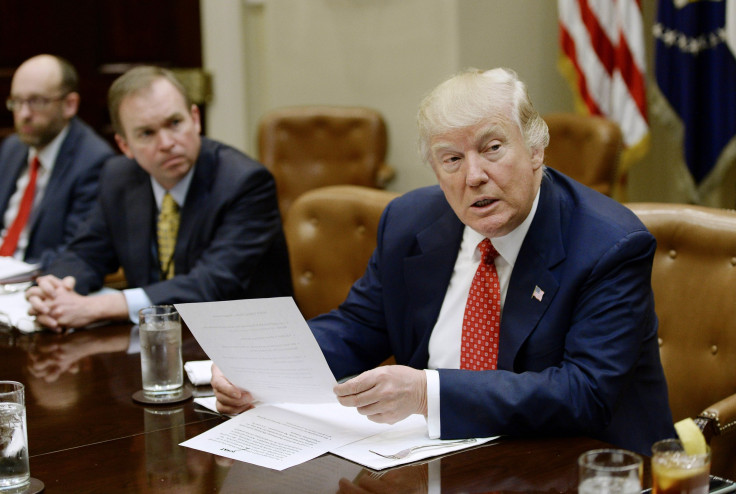2020 US Budget: Trump Wants 5% Cut In Non-Defense Spending

President Donald Trump will present the 2020 fiscal budget on Monday and urge Congress to cut non-defense spending by 5 percent.
In Trump’s $4.7 trillion budget plan, chances are that many programs may be chopped altogether to bring down non-defense discretionary spending below $542 billion, as required in the 2011 Budget Control Act.
At the same time, a higher outlay will be recommended for the military, border security, veterans’ healthcare, according to the White House budget office.
The president’s budget proposal, due for release at 11:30 a.m. (1530 GMT) will constitute the first part of Trump’s funding wrangle with Congress controlled by rival Democrats. In the U.S, Congress controls the federal purse strings.
Trump’s priorities
The budget will duly reflect Trump’s priorities. The highlight maybe Trump proposing a 5 percent increase for the Department of Homeland Security funding and raising money for his border wall along with strengthening manpower for immigration and border enforcement.
The budget will also include at least a 10 percent hike for veterans’ healthcare programs and investments in opioid addiction programs.
Some of the budget proposals also raise the possibility of another government shutdown as Congress will be notified to pass $8.6 billion to build the U. S.-Mexico border wall.
The budget’s vision will be laying down $2.7 trillion in spending cuts for over a decade. According to the OMB, the budget dynamics will seek to balance the deficit by 2034, in excess of the traditional 10-year time frame worked on by previous administrations.
Fiscal sanity without compromising targets
Russ Vought, the acting OMB director, in a statement, said the budget would reflect the opportunity to return to “fiscal sanity without halting our economic resurgence” while addressing critical priorities. That the budget will give a big boost to defense spending looks clear though details are not yet available.
Vought had said earlier that new defense spending could be incorporated in the Overseas Contingency Operations (OCO) fund which is mainly used for emergencies.
But critics alleged that OCO is a slush fund used in circumventing spending caps.
Number disadvantage for Trump
Since rival Democrats are controlling the House of Representatives, Trump’s wish list in the budget may not curry favor with Democrats.
A minimum of 60 votes is essential to get proposals passed in the 100-member Senate where Trump’s Republican Party has only 53 lawmakers.
But a funding consensus between the White House and Congress is inevitable to emerge by Oct. 1 for keeping the government fund-rich for running various programs.
There is also the urgency for the two sides to work together in raising the debt limit, else the risk of default will unleash serious economic repercussions.
© Copyright IBTimes 2024. All rights reserved.





















